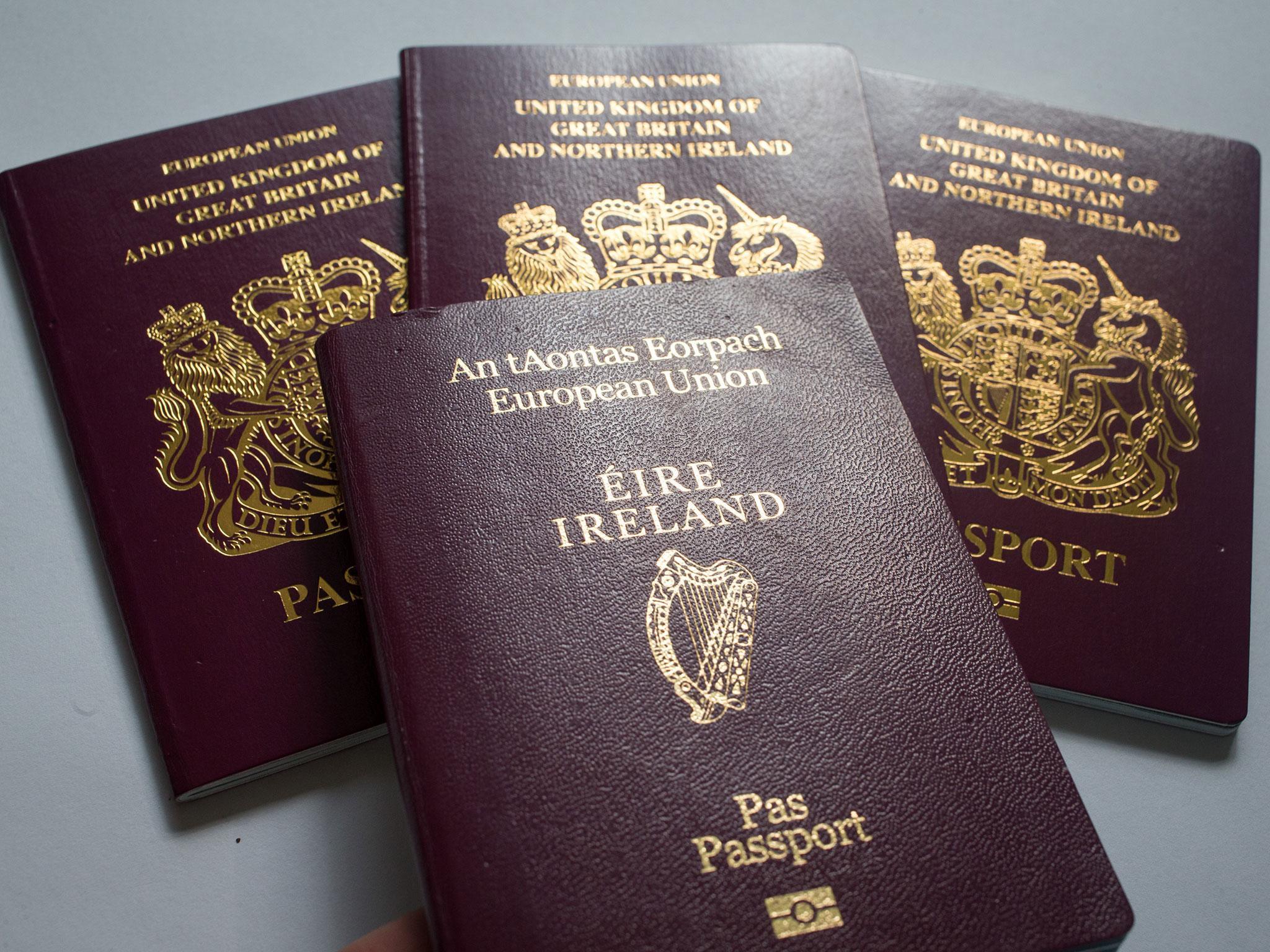Brexit blamed as number of Britons applying for Irish passports rises by two thirds
Applications from Great Britain and Northern Ireland up 69 per cent in first quarter of 2017 compared with same period last year

The number of British people applying for Irish passports has risen by more than two thirds, indicating a continuing surge in Britons seeking to become citizens of Ireland following the Brexit vote.
Ireland’s foreign ministry received 51,079 passport applications from Great Britain and Northern Ireland in the first quarter of 2017, compared with 30,303 during the same period last year — a rise of 69 per cent. It received 250,000 passport applications from across the world in the same quarter.
The increase in demand is so large that the country's foreign department is said to be hiring extra staff and has launched an online passport renewal service to handle the number of applications.
Charlie Flanagan, Ireland’s foreign minister and member of the ruling Fine Gael party, said the surge in applications was at least partly down to Brexit, as people seek to remain EU citizens at a "changing time in relations".
“It’s reasonable to suggest that Brexit is a factor in what are record numbers of applications,” he said.
“I think it’s also reasonable to assume that there are large numbers of people of Irish descent who now feel that they would like to remain as EU citizens in what is a changing time in relations between Ireland and the UK.”
At the start of this year, it was revealed that 733,060 Irish passports were issued last year, a rise of nine per cent on 2015, with around 65,000 given to Britons — a 42 per cent rise on 2015.
The biggest surge was seen in the three months after the Brexit referendum, when Ireland saw an 83 per cent rise in the applications from the UK for Irish passports. Less than four days after the Brexit vote last June, Mr Flanagan said there had been a surge in applications because of a “sense of concern”.
Among these were more than 10 British MPs and peers, who had applied for Irish passports in the hope that they could retain EU citizenship after the UK leaves the European Union.
In light of the increase in applications, Mr Flanagan said he was “very concerned” about the UKs departure from the EU, particularly in relation to its potential impact on the Good Friday agreement.
“I am very concerned about the impact of the UK’s withdrawal from the EU on our economy here in Ireland, and I am really anxious to make sure the Good Friday agreement is not disturbed,” he said.
“I am saddened that the UK is leaving the EU formally, but I of course very much accept the desire and will of the majority in the UK.”

Whether British citizens will retain their right to freedom of movement after Brexit is still unclear. Guy Verhofstadt, the European parliament’s Brexit coordinator, has said however that he will try to persuade EU leaders to make that the case.
Under the Good Friday agreement, the 1.8 million people resident in Northern Ireland are entitled to Irish and EU citizenship.
Join our commenting forum
Join thought-provoking conversations, follow other Independent readers and see their replies
Comments
Bookmark popover
Removed from bookmarks